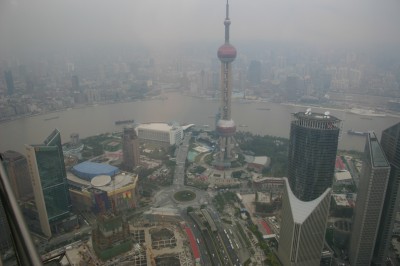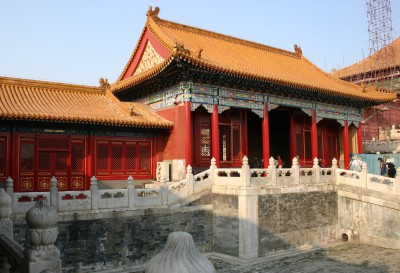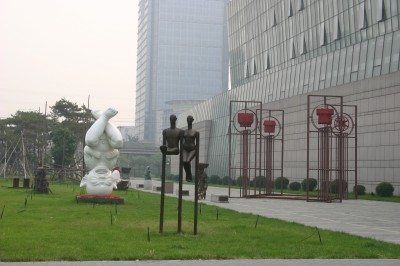The chilly air of the Shanghai hotel room feels positively wintry in comparison with the outdoor evening temperature of about 25 degrees centigrade and a muggy 85 percent humidity. The cool air is refreshing for about five minutes. However, it soon becomes too much for me.
Moving further into the room, I turn the light in the bathroom on. This sets off an automatic squirt of something cleansing into the toilet bowl (which I presume is already squeaky clean after the chamber maid’s ministrations). Sitting down I quickly discover that the toilet seat is heated.
Later on, catching a quick nightcap with a few of my fellow travellers in the bar on the 33rd floor, we have a panorama view of this vibrant, futuristic, dynamic city that at night is lit up like a Christmas tree. Down on the streets cars whiz by transporting the millions of busy Shanghai citizens and visitors to their various destinations.
The expenditure of energy in Shanghai and the rest of China is enormous. Although Shanghai by no means represents the average energy expenditure of all Chinese cities, towns and villages, it is hard to ignore the fact that the use of fuel to power the Chinese society of one billion people and its growing standard of living will place increasing strains on the environment. The challenges to combat air and water pollution and to find alternative energy sources are enormous, but pressing.
At our visit to the Chinese headquarters of Novozymes we were told that in four years time they expect to be ready for the production of second generation biofuels. In the meantime, farmers here and in other parts of the world are busy planting crops for energy. These crops take up valuable farmland that could be used for food production.
We should not only be looking at biofuels and other alternative sources of renewable energy. We should also be focusing much more strongly on reducing energy consumption. Just like eating too much food is bad for the health of the individual, so too is over-consumption of energy bad for the health of the planet. This is very evident in a rapidly expanding economy like China’s.









